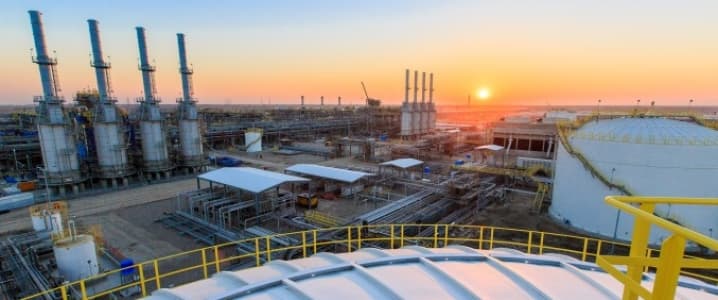ExxonMobil evacuated some staff from southern Iraq over fears of rising tensions between the U.S. and Iran, although there is still little evidence to suggest any oil operations will be impacted.
Exxon removed 60 workers from its West Qurna 1 project, and sent them to Dubai, according to Reuters. The evacuation comes in the wake of the U.S. withdrawing embassy staff from Baghdad, which the State Department said was in response to the threat of attack from Iran.
But a top Iraqi official seemed a little perplexed by the decision. “Exxon Mobil’s evacuation is a precautionary and temporary measure. We have no indication over any dangers, the situation is secure and very stable at the oilfield which is running at full capacity and producing 440,000 bpd,” Ihsan Abdul Jabbar of Iraq’s South Oil Company, which owns the field, told Reuters. Exxon is the lead contractor on the project.
“There are over 1,700 people working in the oilfield, 1,300 are South Oil Company staff and 400 are Iraqis working with foreign companies. Only around 60 people have left and they’re all advisors, administrators and finance staff,” Abdul Jabbar told Reuters. Oil production at West Qurna 1 remains unaffected at 440,000 barrels per day.
“This withdrawal may send the wrong message about the situation in Iraq, and that’s something we reject,” Iraq’s Oil Minister Thamir Ghadhban said in a statement on Saturday. “No single personnel from other foreign companies withdrew,” he said.
Other oil companies operating in Iraq’s enormous southern oil fields said they were monitoring the situation but saw no reason to suggest that the threat level was any higher than normal. Last week, Royal Dutch Shell said that it was monitoring the situation but that everything was operating as normal. BP said something similar. Related: Back To The Future: Labor Party Looks To Renationalize UK Utilities
The series of events raises questions about what exactly is going on in Iraq. The U.S. State Department decided to remove people as part of an “ordered departure” from the embassy in Baghdad, a move that sparked alarm. The evacuation of diplomatic personnel exacerbated tensions, and came after a series of escalatory events, including the U.S. decision to send naval assets to the region and the apparent attacks on Saudi oil tankers.
But the embassy move was odd. The U.S. embassy in Baghdad is the world’s largest. It’s a fortress, and staff worked at the site throughout other, more unstable, periods of time in the past 15 years. “It is the US perception of risks to its interests in Iraq that has changed, not the inherent risk itself, and that has prompted the sudden change in tone in recent days,” Niamh McBurney, head of MENA for global risk analysis firm Verisk Maplecroft, told Platts in an email. The evacuation “appears to be a political decision” that is “more about the US not wanting to engage with Iran in Iraqi territory as part of its 'maximum pressure' campaign.”
On Sunday, however, a rocket apparently landed near the U.S. embassy, although it was not clear what exactly was targeted. Pro-Iranian militias denounced the attack and no group took responsibility. Analysts said it was possible that the rocket attack was done by groups that would stand to benefit from heightened U.S.-Iran tension. “The rocket attack was intended to make the Americans blame the Iraqi government and the armed groups in Iraq,” Iraqi political analyst Ahmed al-Sharifi told the Wall Street Journal. Other analyst said that the Iraqi government has little control over militias in the country, which may have been behind the incident. Related: War With Iran Could Send Oil To $250
Iraq has no interest in seeing the U.S.-Iran conflict play out on its territory. “Iraq has been living through hell for the last four decades,” Iraq's President Barham Salih told CBS News. “Enough of wars, enough of conflict. And certainly, Iraqis do not want to see this country yet again turn into a zone of proxy conflict.” He added that he thought the U.S. decision to evacuate embassy staff was “unwarranted.”
In fact, the episode comes after both the U.S. and Iran have tamped down the aggressive rhetoric, and tensions had subsided somewhat. But Trump tweeted in reaction to the apparent incident. “If Iran wants to fight, that will be the official end of Iran. Never threaten the United States again!”
Ultimately, the risk level is murky, especially with very little evidence offered publicly by the U.S. government. “We do not see an increase in risk to IOC personnel or operations in Basra and Maysan, or elsewhere across the country, either from or as a result of the US warning,” Verisk Maplecroft's McBurney said to Platts. Another source pointed out to Platts that oil companies remain active in Libya, where the dangers are much more serious.
By Nick Cunningham of Oilprice.com
More Top Reads From Oilprice.com:
- OPEC+ Top Priority: Don’t Crash Oil Prices
- One Country That Could Win Big From The U.S., China Trade War
- Why China Hasn’t Slapped Tariffs On U.S. Oil Imports


















